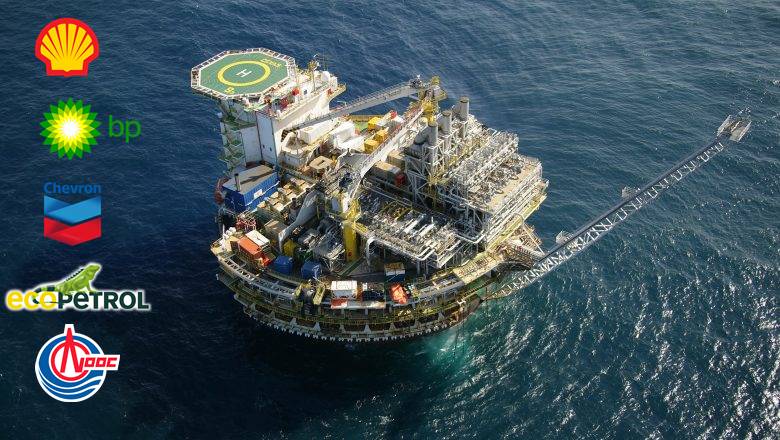
The two giant operators will explore the areas of Pau Brasil and Saturno from the beginning of next year
The two European operators, BP and Shell, presented plans to carry out exploratory drilling in the pre-salt areas of Pau Brasil and Saturno, respectively, with operations in the Santos Basin potentially starting early next year. Both Pau Brasil and Saturno were acquired last September in the fifth pre-salt round.
The production sharing contracts were officially signed three weeks ago, and the two companies wasted no time in fulfilling their respective drilling commitments with the federal environmental regulator Ibama.
Chevron and US currency Chevron have revealed ambitious plans to hit five wells in the Saturn area.
It is understood that the campaign is set to start in January 2020 with a single company as well, provided the duo secures Ibama's drilling license in time.
The remaining four prospects are contingent on the results of the first prospect and could be drilled between mid-2020 and late 2021. In addition to the large Saturno prospect, which is expected to be drilled by the partners next year, a 3D seismic survey also mapped the Dione structure of the block.
Together, they are estimated to hold unrelated volumes of 6,22 billion barrels of oil.
Shell and Chevron acquired Saturno for a fixed signing bonus of 3,125 billion reais ($826,7 million) and offered a 70,2% share of the government's profit.
Both companies are cultivating 5% labor interest each for Colombia's Ecopetrol in Saturno.
Upon completion of this transaction, Shell will remain operator with a 45% stake, while Chevron will own the remaining 45%.
In addition to Saturno, Shell has ongoing orders with Ibama for the drilling of up to five wells in the pre-salt province of the Santos Basin, including three in the Alto de Cabo Frio Oeste area and two in the southern region of Gato do Mato . Shell, led in Brazil by Andre Araujo, has also applied for permission to run a drillway test south of Gato do Mato and is seeking a drilling license for three other wells in Block CM-791 in the Campos Basin. pre-salt polygon.
A Shell has already agreed to charter the Brava Star drillship from Brazilian contractor Constellation Oil Services, formerly known as Queiroz Galvão Oil & Gas, to conduct campaigns in the south of Gato do Mato and Alto de Cabo Frio Oeste.
Meanwhile, BP and project partners China National Offshore Oil Corporation (CNOOC) and Ecopetrol have submitted plans for the drilling of up to three wells in Pau Brasil.
O program is scheduled to start with the drilling of a well in August 2020, with BP holding an option to explore the other two rigs and conduct daylight savings at a later date.
Pau Brasil, located southeast of the Jupiter pre-salt discovery in Block BM-S-24, is estimated to have unrisked volumes of 3,9 billion barrels of oil in place.
BP operates Pau Brasil with a 50% interest, while CNOOC and Ecopetrol hold 30% and 20% interests, respectively. The area was acquired for a fixed signature bonus of 500 million reais and a government share of 63,79%.
Petrobras has plans to drill up to six wells in the large Alto de Cabo Frio Central area, while US super-major ExxonMobil has applied to drill up to 22 prospects in seven blocks acquired in recent rounds, including at least one in the Tita area.
Operators hope that the new administration of Brazilian President Jair Bolsonaro will adopt a more pragmatic approach when it comes to IBAMA's licensing processes, reducing the bureaucratic aspects of environmental licensing and accelerating oil and gas exploration.








